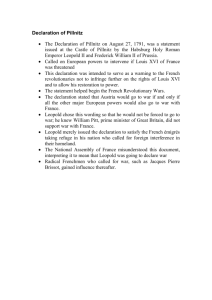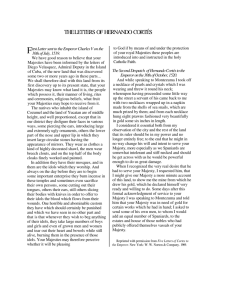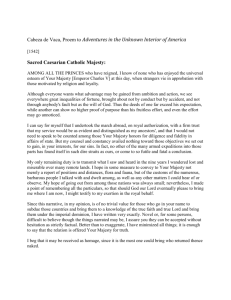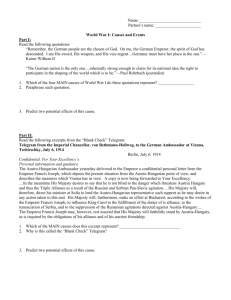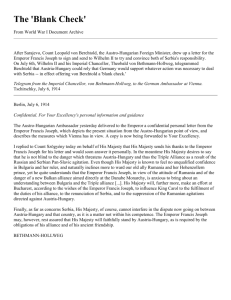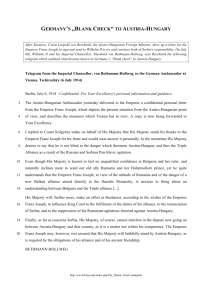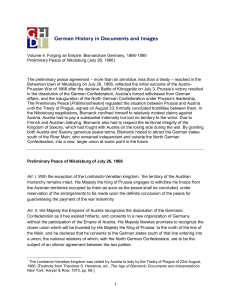THE DECLARATION OF PILLNITZ (1791) [The flight of the king, his
advertisement
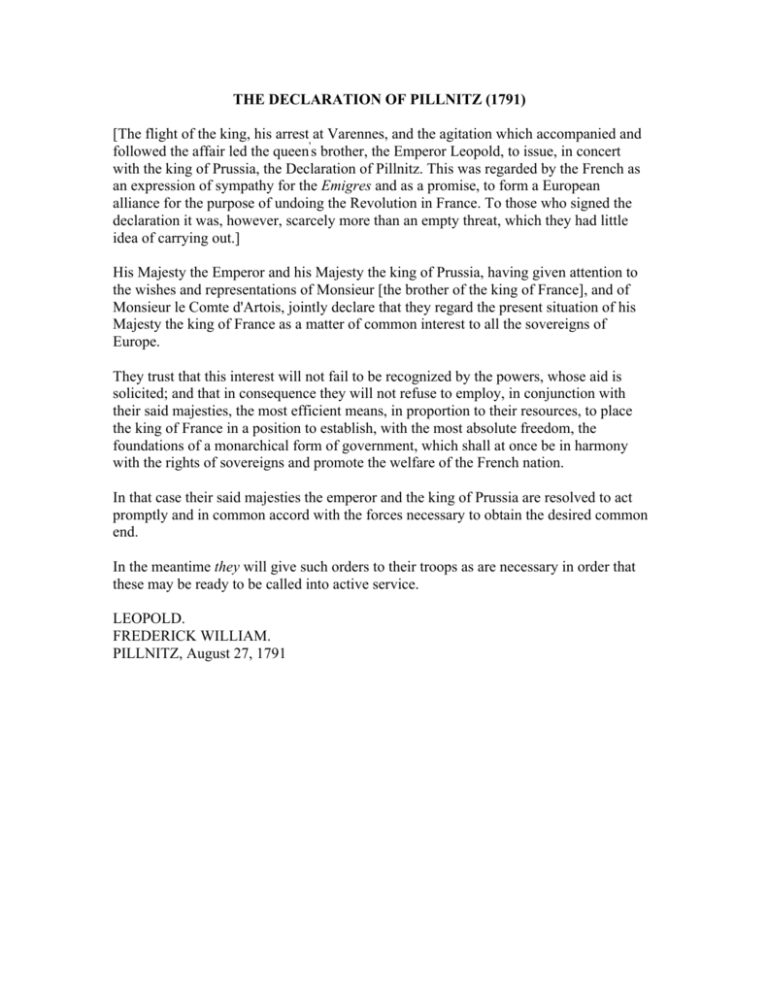
THE DECLARATION OF PILLNITZ (1791) [The flight of the king, his arrest at Varennes, and the agitation which accompanied and followed the affair led the queen's brother, the Emperor Leopold, to issue, in concert with the king of Prussia, the Declaration of Pillnitz. This was regarded by the French as an expression of sympathy for the Emigres and as a promise, to form a European alliance for the purpose of undoing the Revolution in France. To those who signed the declaration it was, however, scarcely more than an empty threat, which they had little idea of carrying out.] His Majesty the Emperor and his Majesty the king of Prussia, having given attention to the wishes and representations of Monsieur [the brother of the king of France], and of Monsieur le Comte d'Artois, jointly declare that they regard the present situation of his Majesty the king of France as a matter of common interest to all the sovereigns of Europe. They trust that this interest will not fail to be recognized by the powers, whose aid is solicited; and that in consequence they will not refuse to employ, in conjunction with their said majesties, the most efficient means, in proportion to their resources, to place the king of France in a position to establish, with the most absolute freedom, the foundations of a monarchical form of government, which shall at once be in harmony with the rights of sovereigns and promote the welfare of the French nation. In that case their said majesties the emperor and the king of Prussia are resolved to act promptly and in common accord with the forces necessary to obtain the desired common end. In the meantime they will give such orders to their troops as are necessary in order that these may be ready to be called into active service. LEOPOLD. FREDERICK WILLIAM. PILLNITZ, August 27, 1791
